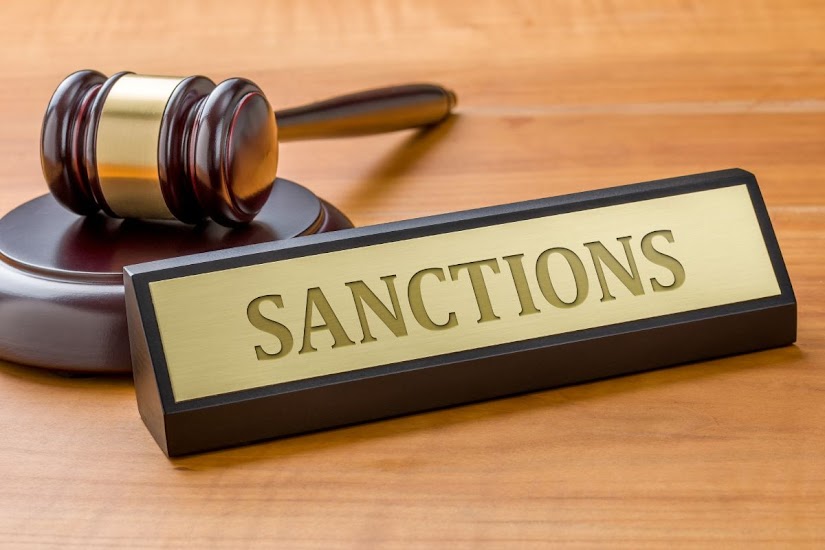TYPES OF SANCTIONS IN CRIMINAL LAW
Penalties, which are one of the types of sanctions in
criminal law, are deterrent sanctions imposed by the state on the person for
the crime committed by the state. Penalties are regulated in Articles 45-52 of
the Turkish Criminal Code. In Article 45 of the Turkish Criminal Code, it is
stated as 'Penalties are imprisonment and judicial fines as sanctions imposed
for crimes.
Classification of Penalties in Criminal Law
What are the types of penalties regulated as sanctions in
Turkish Criminal Law? Within the system of sanctions in Turkish criminal law,
penalties are divided into two categories: imprisonment and judicial fines.
While judicial fines are penalties that have an effect on assets, imprisonment
penalties are freedom-binding penalties. Prison sentences are served in the
penal execution institution. prison sentences are listed as follows in the law:
Aggravated life imprisonment,
Life imprisonment,
Fixed-term imprisonment
Types of Sanctions in Criminal Law-Prison Sentences
What are the sanctions in Turkish Criminal Law? Sanctions in
criminal law are mostly aimed at ensuring the deterrence of penalties. However,
in some cases, special forms of execution have been introduced in order to
eliminate the drawbacks of prison sentences, considering that the punishment
will not have the desired effect on deterrence. Institutions such as
postponement, conditional release and conversion of short-term prison sentences
into alternative sanctions are forms of execution within the sanctions in
criminal law to eliminate the drawbacks of prison sentences.
Aggravated Life Imprisonment
When it is asked 'What are the types of punishment
prescribed within the prison sentence?', we first see the aggravated life
imprisonment sentence. Aggravated life imprisonment within the sanctions system
in Turkish criminal law is a type of punishment that continues throughout the
life of the convict. According to the relevant articles of the Law on the
Execution of Criminal and Security Measures, those sentenced to aggravated life
imprisonment can benefit from conditional release if they serve thirty years of
their sentences, those sentenced to life imprisonment twenty-four years, and
those sentenced to other term imprisonment half of their sentences in the
execution institution. The time to be spent in an execution institution for
conditional release
a) Thirty-six in case of conviction to more than one
aggravated life imprisonment sentence or aggravated life imprisonment sentence
and life imprisonment sentence,
b) Thirty in case of conviction to more than one life
imprisonment sentence,
c) Maximum thirty-six years in case of conviction to a
sentence of aggravated life imprisonment and a term of imprisonment. In case of
recurrence, if thirty-nine years of the aggravated life imprisonment sentence
is served in the execution institution in good behavior, conditional release
can be benefited.
Life imprisonment
Life imprisonment, which is one of the sanctions of criminal
law, continues throughout the life of the convict. According to the relevant
articles of the Law on the Execution of Criminal and Security Measures, those
sentenced to life imprisonment can benefit from conditional release if they
serve twenty-four years in the execution institution. The period to be spent in
the execution institution for conditional release is thirty years in case of
conviction to more than one life imprisonment sentence.
Term of Imprisonment
Another imprisonment penalty regulated within the sanctions
valid in criminal law is a term of imprisonment. A term of imprisonment is a
sentence of imprisonment of not less than one month and not more than twenty
years, unless otherwise specified in the law. A sentence of imprisonment of one
year or less is a short-term imprisonment. According to the Turkish Penal Code,
short-term imprisonment can be converted into certain situations according to
the personality, social and economic situation of the offender, his/her remorse
during the trial process and the characteristics of the commission of the
crime.
These are the circumstances in which short-term
imprisonment, which is a type of sanction in criminal law
a) Judicial fine,
b) The damage suffered by the victim or the public is fully
compensated by way of restitution, restitution or compensation,
c) To attend an educational institution, including
accommodation if necessary, for at least two years in order to acquire a
profession or art,
d) Being banned from going to certain places or doing
certain activities for a period of half to one times the sentence imposed,
e) In the event that a crime is committed by abusing the
rights and powers provided by it or by acting contrary to the obligation of
care and diligence required by it, the relevant driving license and registration
documents shall be withdrawn for a period from half to one times the sentence
imposed, and the person shall be prohibited from practicing a certain
profession and art,
f) It is stated that the convicted sentence can be converted
into employment in a publicly useful work for a period of half to one times the
sentence and provided that it is voluntary.
Judicial Fine
The judicial fine, which affects the assets of the person
within the sanctions system in Turkish criminal law, is among the sanctions
valid in criminal law imposed by the person committing a crime. The judicial
fine within the sanctions valid in criminal law consists of the payment of the
amount calculated by multiplying the number of full days determined to be not
less than five days and not more than seven hundred and thirty days in cases
where there is no contrary provision in the law, by the amount calculated by
multiplying the amount appreciated as the equivalent of one day, by the convict
to the State treasury. The amount is determined by taking into account the
economic and other personal circumstances of the person.
This article is intended for general informational purposes
only and not intended as a substitute for the advice and counsel of a criminal
defense attorney. If you want to contact an English-speaking
criminal lawyer in Istanbul for more information you can contact our office.





